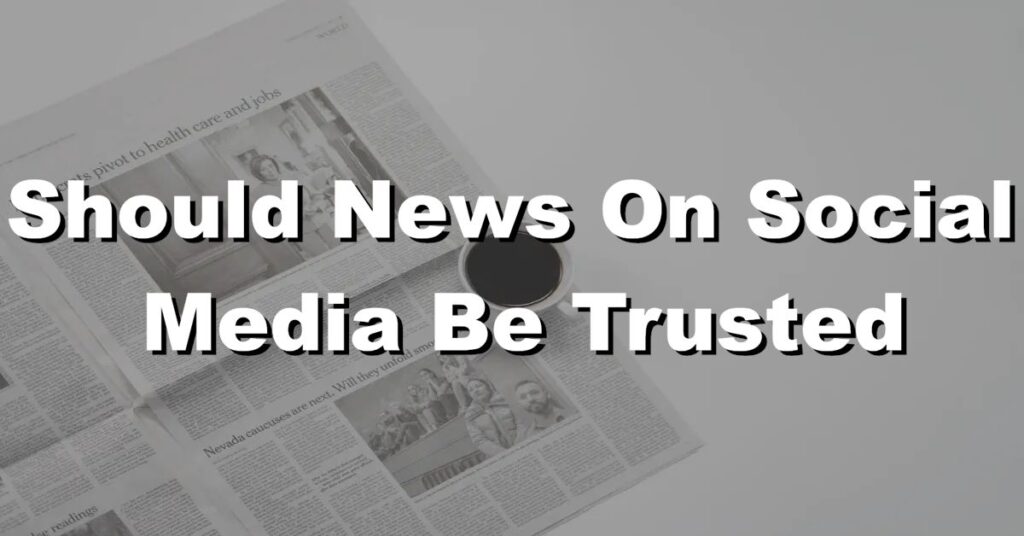In recent years, social media has become a primary source of news for many individuals. While this has made news more accessible, it has also raised questions about the trustworthiness of information shared on social media platforms. In this article, we will examine the reliability of news shared on social media, and provide tips on how to evaluate the credibility of sources and information.
The Proliferation of News on Social Media: Understanding Its Impact
Social media has revolutionized the way news is consumed and shared. With millions of users around the world, platforms like Facebook, Twitter, and Instagram have become significant sources of news for many individuals. The ease and speed of sharing information on social media have contributed to the rapid proliferation of news content.
While this has opened up new avenues for accessing news, it has also raised concerns about the impact of social media on the quality and reliability of information.
The spread of news on social media occurs through user-generated content, shares, and algorithms that prioritize popular or engaging posts. This can result in the amplification of both credible and misleading information. Social media has the potential to facilitate the dissemination of diverse perspectives and marginalized voices.
However, it can also perpetuate echo chambers and filter bubbles, where users are exposed only to content that aligns with their existing beliefs, further polarizing society.
The Spread of Misinformation: How to Spot Fake News
One of the major challenges associated with news on social media is the spread of misinformation or fake news. False or misleading information can quickly go viral, causing confusion and potentially shaping public opinion based on inaccuracies. As responsible consumers of news, it is essential to develop critical thinking skills and employ fact-checking techniques.
To spot fake news, it is important to verify the source of the information. Check if the article or post is from a reputable news organization or if it has been shared by multiple credible sources. Look for supporting evidence and corroborating reports. Be skeptical of sensational or emotionally charged headlines and images.
Pay attention to the tone and language used in the article, as misinformation often relies on exaggeration or manipulation of facts.
The Responsibility of Social Media Platforms: Combatting False News
Social media platforms have a responsibility to address the spread of false information on their platforms. Many platforms have taken steps to combat fake news by implementing fact-checking programs, partnering with independent organizations, and using algorithms to reduce the visibility of misleading content.
They have also introduced features that flag potentially false information and provide users with additional context or alternative sources.
However, the challenge of combating misinformation is complex. Balancing the need for freedom of expression and the prevention of harmful content is a delicate task. Social media platforms must continue to invest in technology, collaborate with experts, and engage with users to improve their ability to detect and address false information effectively.
The Role of Citizens: Fact-Checking and Critical Thinking
In an era of widespread information sharing, citizens play a crucial role in combating the spread of misinformation. It is essential to take personal responsibility for verifying the accuracy of the news before sharing it further. Fact-checking websites and tools can help in verifying claims and identifying misleading information.
Developing critical thinking skills is equally important. Question the source, examine biases, and seek multiple perspectives before forming an opinion. Engage in civil discussions and be open to challenging your own beliefs. By being discerning consumers of news, citizens can contribute to a healthier information ecosystem and a more informed society.
Conclusion
In conclusion, social media has revolutionized the way we consume news, but it has also created new challenges and risks. While it’s convenient to get news on our social media feeds, we must be vigilant about the sources and reliability of the information we’re receiving.
It’s essential to be critical and evaluate the accuracy of the news we see on social media to ensure that we’re not falling victim to disinformation or propaganda.

